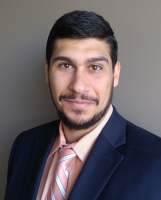I am a Chinese EB-5 investor with an approved I-526. I’m the principal applicant of the petition. Due to the backlog, it is highly possible that I need to wait for another 5 years before I can continue with the next step of the EB-5 process. I’m thinking about applying for an F-1 visa and attending a Ph.D. program in the U.S. while I’m waiting. I’ve been reading QA posts on eb5investors.com and understand that applicants like me might be denied during the consular process of F-1 or be questioned by customs officers because of the intention conflict between F-1 and EB-5. However, I still want to try. In my case, what documents do I need to prepare to show my “ties” to my home country? How should I answer the question “What’s your plan after you finish the Ph.D. program”?
Answers

Charles Foster
EB-5 Immigration attorneysYes, you may apply for a non-immigrant F-1 Student visa and, like all applicants, you must establish under Section 214(b) of the Immigration and Nationality Act to the satisfaction of the Consular Officer interviewing you that you do not intend to immigrate to the United States. You must also disclose the fact that you have filed an EB-5 Investor Petition on Form I-526 in order to seek Lawful Permanent Residency. This creates an obvious conflict since, by definition, an F-1 non-immigrant student is one that plans to study in the U.S. and return their home country. However, given the length of the backlog, it is possible for you to still apply and explain to the Consular Officer that, while immigrating to the U.S. is a long-term goal, you have a short interim goal of completing your Ph.D. degree. That is called "dual intent." If you have a sympathetic Consular Officer, he may still issue you the non-immigrant F-1 Student visa although, as in every case, there is no assurance that he would.

Lynne Feldman
EB-5 Immigration attorneysThe best you can do is to be upfront about your I-526 approval and confirm your intent to return to the consulate to consular process when your priority date is current. Meanwhile, you have a chance at an excellent Ph.D. program in your field in the U.S.

Fredrick W Voigtmann
EB-5 Immigration attorneysThere is no downside in applying for the F-1. In other words, if the F-1 visa application is denied under 214(b) for failure to overcome the presumption of immigrant intent, this will not affect your pending I-526 petition or your EB-5 case in general. You may submit documents demonstrating your family, social and economic ties to your home country. This typically is done by providing house or property ownership certificates, banking and investment records, school records and anything else that demonstrates your ties to your home country. The decision to approve or deny your visa application is highly discretionary and will depend upon the consular officer's view of the application. Although F-1 does not allow dual intent (i.e., current nonimmigrant intent with future immigrant intent), the mere existence of an immigrant petition, particularly a long-backlogged one, should not be the sole reason for denial of a nonimmigrant visa.

Jinhee Wilde
EB-5 Immigration attorneysIf you could convince the consulate officer that you intend to come back home either during or after your Ph.D. to be interviewed for the immigrant visa before going back to U.S. as a permanent resident, you should have a chance. It all depends on the consulate officer and whether he/she believes you. 214b centers around the applicant having sufficient family, community and financial ties back home to assure the person to come back to home country and it is very subjective. If you''re the only person immigrating (i.e., you are not taking any family with you), it would be a good indication that you will return home. Having a lot of money in the bank that will necessitate you going back to liquidate before making the permanent move also could be helpful. However, it will depend on the discretion of the individual officer.

Yazen Abdin
EB-5 Immigration attorneysYou are correct. Applying for a student visa (F-1) is tricky when you have an approved I-526. Ultimately, it will be up to the immigration officer at the embassy to decide whether or not to issue you the student visa. If the student visa is approved, you may once again be questioned by CBP upon your arrival at a U.S. port of entry. Be honest and explain that you are entering the U.S. temporarily to complete your Ph.D. program and that you will be going back to your home country afterward to apply for your immigrant visa based on the approved I-526.

Bernard P Wolfsdorf
EB-5 Immigration attorneysIf you are accepted to a Ph.D. Program, it does not automatically mean you do not have a unrelinquished residence abroad. While the petition is undoubtedly an issue, it is possible to show an intent that satisfies current legal standards. The key is to be truthful and present evidence of your ties and eligibility for student visa status.

Dale Schwartz
EB-5 Immigration attorneysIf you have an approved EB-5 petition, there is no legal reason why a consul should deny your F-1 application so you can pursue a Ph.D. degree, but some consuls will do that. The argument you have is that you are processing your case at the US Consulate in China; that you are just coming to work on your degree until your quota number is reached more than 5 years from now; and that you have plenty of ties to your home country; plus you have an open round-trip ticket.
DISCLAIMER: the information found on this website is intended to be general information; it is not legal or financial advice. Specific legal or financial advice can only be given by a licensed professional with full knowledge of all the facts and circumstances of your particular situation. You should seek consultation with legal, immigration, and financial experts prior to participating in the EB-5 program. Posting a question on this website does not create an attorney-client relationship. All questions you post will be available to the public: do not include confidential information in your question.






